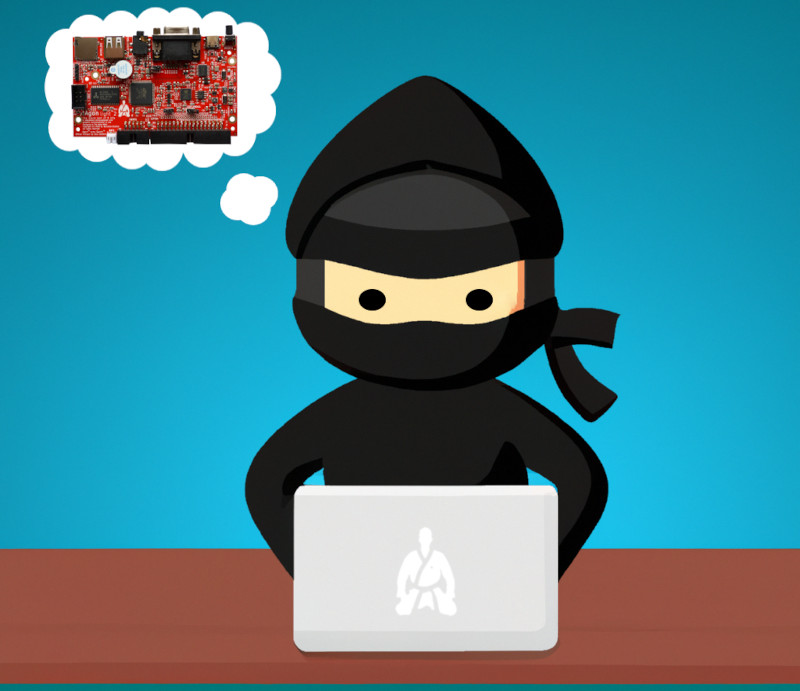
AgonLight2 is incredible small Z80 based retro computer which has 512KB of RAM, VGA display and PS2 Keyboard. The AgonLight2 community just in Facebook is over 1700 people.
For all beginners The Agon FAQ covers all most common questions asked in the FaceBook page.
The Agon Light Wiki is the official source for all documentation regarding the Agon Quark firmware and any third-party software development.
There is great tools and games developed during the last year. Here I will point to some:
Text editors:
- AED: Another Text Editor – Another Text Editor.
- nano – Editor with nano-style key bindings.
- Vi – Vi for the Agon series of eZ80 computers.
Programming languages:
- AgDev – Port to Agon Light of TI-84-CE C/C++ Toolchain which uses LLVM and generates eZ80 ADL code.
- agon-ez80asm – ez80 assembler, running natively on the Agon platform.
- Agon Forth – Forth for Agon computer.
- BBC Basic – Official AGON QUARK Firmware: BASIC Interpreter.
- BBC Basic ADL – Official AGON QUARK Firmware: BASIC Interpreter (ADL version).
- Turbo Rascal Syntax Error – TRSE is a complete suite (IDE, compiler, programming language, resource editor) intended for developing games/demos for 8 / 16-bit line of computers.
- Z88DK – The Development Kit for Z80 Computers.
Operating systems:
- CP/M 2.2 for Agon Light – CP/M 2.2 port for Agon Light that didn’t require custom firmware. Use your Agon fully and have access to CP/M system.
- TRS-OS for Agon Light – A bootstrap to run TRS-OS on Agon Light under MOS. TRS-OS is an eZ80 port of the LS-DOS TRS-80 operating system. No firmware change required.
- Zeal-8-bit-OS for Agon Light – A bootstrap to run Zeal 8-bit on the Agon Light under MOS. No firmware change required.
Games:
- AgonLight Game Library – Games for the BBC Micro and Electron converted for AgonLight.
- Agon Light Invaders – Invaders for the Agon Light.
- Dans la prison hantée – This prison is haunted. But this prison also hides a treasure. And finding treasures is your job.
- Diamond Quest – eZ80 game on AgonLight. A simple game, built purely as a goal to learn z80 assembly routines on the Agon Light.
- Draegerman – Draegerman for Agon Light.
- Drug Wars – An adaption of the DOS version of the game, converted to BBC BASIC (Z80) for the Agon Light.
- Escape the Mansion – Multi-room graphical adventure.
- Game of Life – Conway’s Game of Life for the Agon Light.
- Haunted_House – Agon Light2 Text Adventure Game, written in BBC BASIC.
- Haunted House III – Haunted House Text Adventure Game for the Agon Light2.
- Lunar Lander – Lunar Lander Game.
- Pitman – Port of Pitman, written in BBC BASIC.
- Realm – An adventure game for Agon Light.
- Rokky – Dungeons and Diamonds game for Agon Light.
- Sargon Chess – Port of the award-winning Sargon Chess program by Dan and Kathe Spracklen from 1978.
- Sokoban – A custom port of the Sokoban game for the Agon platform.
- Space Birds – A simple game written in C for the Agon Light retro computer.
- The Valley – Agon Light conversion of The Valley adventure game.
- TINACOT – An original game inspired by tower defense games and Tetris.
- Vezza – Vezza is a tool for running Infocom compatible (Z-machine) text adventure games.
- Wizard’s Castle – The Wizard’s castle modded for BBC Basic on the Agon Light.
Connectivity:
- Snail – Fast gopher browser for Agon Light (and Agon Light 2)
Music:
- Agon MOD – Agon .MOD tracker.
Utility:
- agon_64cfontloader – Load .64c fonts on the Agon in BBC BASIC.
- Agon Basic Header – Agon Light 2 Basic Header.
- Agon Bootlogo – Assembler MOSlet bootlogo of the Basic Header.
- Agon Flash – Agon firmware update utility.
- Agon Hex – Agon hex editor.
- Agon Light 2 Serial Printer – Mini Thermal Receipt Printer (Serial RxD).
- Agon Utilities – MOS utilities for Agon: copy, view, editor…
- Agon Utils – Utilities for the Agon Light computer.
- calc24 – 24 bit integer calculations in both hex and decimal.
- Console8 Recover – Console8 MOS recover utility.
- HEXLOAD utility – Utility for the Agon platform, to load Intel HEX files over one of its serial ports.
- More Agon Utilities – MOS utilities including gunzip, hexdump tools for interactive navigation of file or memory, strings to extract strings from a binary file

















Recent Comments